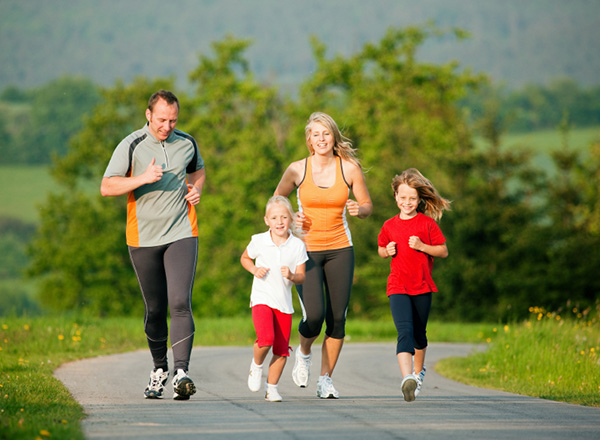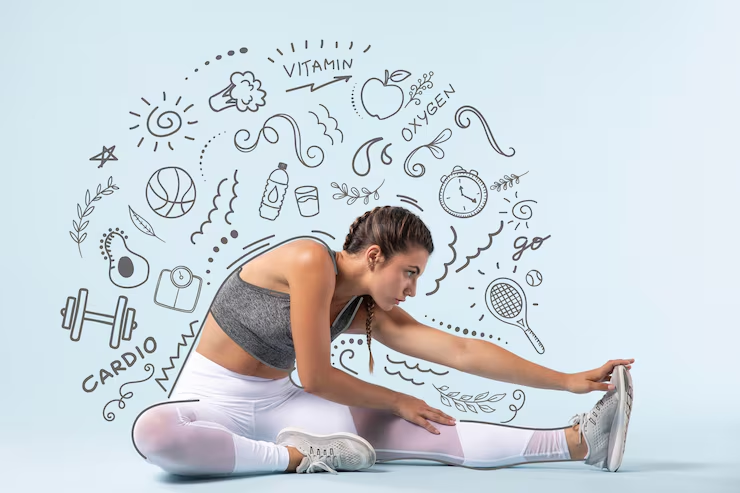In today’s fast-paced world, many people believe that improving health and fitness requires intense gym sessions or strict diets. But research shows that small, consistent lifestyle changes can have a huge impact on your overall health and fitness. Incorporating everyday movement into your routine not only improves physical health but also boosts mental well-being, energy levels, and long-term quality of life.
Even minor movements, repeated daily, can accumulate into significant benefits over time. From walking to stretching to choosing the stairs, every step counts. Understanding the science behind these small changes can help you design a more active, healthier lifestyle.
Why Everyday Movement Matters

Most people underestimate the cumulative effect of daily activities. Even seemingly minor actions, like taking the stairs or stretching at your desk, can:
-
Increase calorie expenditure and aid weight management.
-
Improve cardiovascular health by keeping your heart active throughout the day.
-
Enhance mobility and flexibility, reducing the
-
risk of injury.
-
Boost mental health, including mood, focus, and stress reduction.
Science calls this concept NEAT – Non-Exercise Activity Thermogenesis. NEAT refers to all the energy we burn during activities other than sleeping, eating, or intentional workouts. Studies show that people who consistently integrate movement into their day can burn up to 2,000 extra calories per week just by being more active in everyday life. That’s equivalent to nearly a pound of fat lost per week—without ever stepping foot in a gym.
Quick Everyday Movement Guide
| Activity | Duration/Frequency | Key Benefit |
|---|---|---|
| Take the stairs | 5–10 flights daily | Strengthens legs & improves cardiovascular health |
| Short walks | 5–15 minutes, multiple times/day | Boosts circulation, mental clarity, and digestion |
| Desk stretches | Every 30–60 minutes | Improves posture, reduces stiffness |
| Active hobbies (dancing, gardening) | 20–30 minutes/day | Burns calories, improves mood and flexibility |
| Evening stretching | 5–10 minutes/night | Enhances flexibility and promotes better sleep |
Simple Lifestyle Changes That Make a Big Difference
1. Take the Stairs Instead of the Elevator
Climbing stairs is a natural cardiovascular workout that strengthens your legs and glutes. Over time, these small bursts of activity can improve heart health and build lower body strength. Try making it a habit to take the stairs at work or in public buildings. Even five flights a day can add up significantly over weeks.
2. Walk Whenever You Can
Short walks, even 5–10 minutes, help maintain circulation, improve digestion, and reduce stress. Walking meetings, post-lunch strolls, or evening walks around the neighborhood can all contribute to your daily movement quota. Research shows that walking not only improves cardiovascular health but also enhances creativity and mental clarity.
3. Desk Stretches and Micro-Movements
Sitting for long periods is linked to poor posture, back pain, and decreased energy. Stand up every 30 minutes, stretch your shoulders, twist gently at your waist, or use a stability ball chair to engage your core. Even small micro-movements like tapping your feet or shifting your weight from side to side can stimulate circulation and prevent stiffness.
4. Incorporate Active Hobbies
Gardening, cleaning, dancing, or playing with your kids aren’t just fun—they also burn calories and keep your body moving naturally. Active hobbies make your health and fitness enjoyable rather than a chore. For instance, dancing for 20 minutes can burn 100–150 calories while boosting your mood, making it a win-win.
5. Use Technology Wisely
Health and Fitness trackers, smartwatches, and step counters help you stay accountable. Set realistic daily goals, such as reaching 7,000–10,000 steps, and gradually increase targets as your halth and fitness improves. Many devices also remind you to stand or move if you’ve been inactive for too long—a simple way to avoid prolonged sitting.
6. Make Chores Count
Household chores are underrated sources of exercise. Sweeping, vacuuming, mopping, or carrying groceries engages multiple muscle groups while increasing your heart rate. Turn mundane tasks into mini-workouts by adding more intensity or moving more deliberately.
7. Stretch and Move Before Bed
A brief evening stretching routine can improve flexibility, reduce tension, and promote better sleep. Even 5–10 minutes of light yoga or stretching before bedtime can help your muscles recover and prepare your body for the next day.
How These Small Changes Transform Your Health
Even minor adjustments, when practiced consistently, can:
-
Improve metabolic health: Reducing risks of diabetes, obesity, and heart disease.
-
Increase strength and endurance: Supporting joint health and overall physical performance.
-
Enhance mood and mental clarity: Movement triggers endorphins, reducing stress and anxiety.
-
Boost longevity: Active lifestyles are strongly linked to longer, healthier lives.
The key is consistency. Small steps performed regularly create habits that compound over time, producing lasting results without overwhelming your schedule.
Tips for Making Everyday Movement a Habit for Health and Fitness
-
Start Small: Don’t overwhelm yourself; even 2–3 small changes a day add up.
-
Schedule Movement: Treat it like any other appointment on your calendar.
-
Track Progress: Use apps, journals, or smartwatches to measure success.
-
Make It Enjoyable: Choose movements or activities you genuinely like.
-
Celebrate Wins: Recognize progress, no matter how small—it keeps motivation high.
-
Involve Others: Invite friends or family to join you; accountability increases success.
Conclusion
Improving health and fitness isn’t only about grueling workouts or fad diets. Small, everyday movements have profound effects when integrated into your lifestyle consistently. By focusing on practical habits—walking, stretching, taking the stairs, or choosing active hobbies—you can transform your health, energy, and quality of life, one small step at a time.
Remember: It’s not about perfection; it’s about progress. Every movement counts. Start today, and let small changes build a healthier, fitter, and more energetic you.













